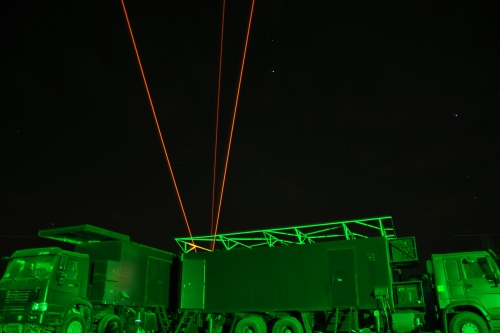China has successfully developed the world's first on-board sodium layer thermometry laser radar
Eps Plastics,Plastic Eps,Heat Preservation Material,Eps Expanded Polystyrene JIANGYIN HENTOL NEW MATERIAL CO.,LIMITED , https://www.hentolgroup.com According to the Space Science and Applied Research Center of the Chinese Academy of Sciences (Space Institute of Chinese Academy of Sciences), the world's first on-board sodium layer thermometry laser radar has been successfully developed by the Research Institute near the Space Environment Research Institute. At the end of last year, it successfully obtained the middle layer top region. About 80-105km high atmospheric three-dimensional wind field, temperature and sodium number density parameters.
According to the Space Science and Applied Research Center of the Chinese Academy of Sciences (Space Institute of Chinese Academy of Sciences), the world's first on-board sodium layer thermometry laser radar has been successfully developed by the Research Institute near the Space Environment Research Institute. At the end of last year, it successfully obtained the middle layer top region. About 80-105km high atmospheric three-dimensional wind field, temperature and sodium number density parameters.
According to reports, the sodium layer thermometry lidar is an advanced ground-based device for observing the atmospheric wind field, temperature, and sodium number density in the top of the middle layer, and is of great significance for the observation and study of the atmosphere environment in the near-space. The world's first on-board sodium layer thermometry laser radar independently developed by the Space Research Center of the Chinese Academy of Sciences Space Center consists of a launching system, a receiving system, a data acquisition and control system, and a data processing and analysis system. The sodium atomic layer in the top region of the intermediate layer was irradiated with a 589 nm laser to generate fluorescence, and the Doppler shift and broadening of the fluorescence signal were measured and analyzed to obtain the wind speed and temperature information.
During the development process, the Space Environment Research Laboratory of the Space Center of the Chinese Academy of Sciences broke through key technologies such as sodium atom-saturated fluorescence spectroscopy, laser frequency stabilization, laser frequency modulation, pulsed laser amplification, and automotive platform technology. It was completed in mid-October 2009. For the first time, the laboratory received fluorescence signals from the sodium layer at the top of the intermediate layer; in December 2010, it completed the installation and commissioning of the on-board system at the near-field comprehensive observation station near Langfang in the Space Center of the Chinese Academy of Sciences; at the end of the month, the on-board sodium layer wind measurement The temperature laser radar emits laser light in three directions at the same time, and uses three telescopes each with a 1m diameter to simultaneously receive fluorescence signals, successfully obtaining atmospheric three-dimensional wind field and temperature.
According to industry experts, this test is a landmark event for the successful development of the world's first on-board sodium plasma wind temperature measurement laser radar, which is of great significance for the detection technology and research fields of adjacent space environment.
